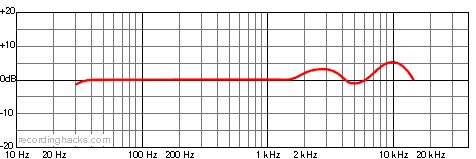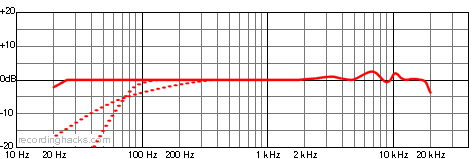you probably are familiar with poor TV transmission
No, but I've had some reception problems before.
what I had to do was work about how to improve the transmission
They let you do that down there?
you probably are familiar with poor TV transmission
what I had to do was work about how to improve the transmission
Yep, you can get a special licence to go on the roof, and swing the aerial around a bit - pretty nifty, really ...No, but I've had some reception problems before.
They let you do that down there?
Blue tack! Or what ever fund owns it...You're da' man Frank....
Which stock should I buy Frank?
but you probably are familiar with poor TV transmission, where a colour signal drops back to B&W presentation, because that's the best it can do, at that moment.
Blue tack! Or what ever fund owns it...
Damn I must of been using cheap knock off Chinese stuff...That's Blu-Tack(tm)
Damn I must of been using cheap knock off Chinese stuff...

When evaluating new additions to our systems, we become far more attentive. We are dying to know if the new addition made a difference. We pay far more attention to what is played and as a result, hear detail, nuances, etc.
Not all of us listen attentively to each new addition to our systems. I am 100.0% confident that changing a cable isn't going to colour the sound in my system, nor changing the DAC(s), and I have interchanged amplifiers recently without worrying about whether the sound has been changed (except for wishing to verify that a secondhand amp is not broken in some way). If I changed speakers I would have to go through the rigmarole of setting them up (with DSP), and that would set me on a slightly traumatic 'verification' process - but I think I have even managed to shorten that in recent months.Than I read phrases like these:
Sometimes I feel that the whole world of audio, pro equipment and audiophiles become a paradoxal vicious circle.
I've tried many times to express myself also here, discussing in public and in private, but it seems I'm not able to show you my uncertainties, or trying to understand why you don't feel the same "pain".
Than I read phrases like these:
Isn't the whole concept of pro audio given the most accurate/fidelty/quality/transparent system?
Since every time you place an addition it changes the way you will hear the sound, isn't this basically the proof that you will never get a total clean system and that in reality you are choosing your own sound? (i.e. color in any case).
Thus, isn't this a paradox? Being "audiophile" researching transparency and to achieve you are simply coloring sound as other people do with their "non-transparency" gears? (just in different ways and dose).
You can't un-colour a coloured preamp, but you can colour a neutral preamp with deliberate effects. Why would anyone want a permanently coloured preamp?Same for microphone preamps. A clean pre is easy, but not beautifying. They want something with good color.
You can't un-colour a coloured preamp, but you can colour a neutral preamp with deliberate effects. Why would anyone want a permanently coloured preamp?


Non of this is understood by science, you can’t measure it you have to trust your ears ..So they can reliably get the color they want for no effort I suppose. I would approach the way you stated it in this day or age. Much color could be added later. Any color. But what I have described is something of the norm in the pro world. Maybe it'll change in time.
I have an interface that has simulations of complete hardware in it. Works well from what I can tell. So why wouldn't I want clean and pick my plug in for the color later?
One of my favorite microphones is a favorite because it nearly is flat in response like a measurement mike. Not quite, but flatter than most. Some people praise it for its versatility and the fact it takes EQ so well for later processing. The general consensus on it is the mic sounds dead, lifeless and doesn't cut thru the mix well.
Here is the response of a revered microphone from a European source.

Here is the microphone I have and like.

Without those larger bumps around 2 khz and 10 khz you don't have the favored (flavored?) sound of the legendary microphone up top. Some preferred microphones are worse than the one up top. The bottom one in a review was said to be, "nice enough in isolation. But not useful in complex recording as it will not cut thru the mix on vocals."
Not in this context. What I am describing there is NOT that your system became better. But that your brain hears more detail that may have always been there so nothing is improved with respect to the new gear. By using blind testing where you don't know whether something has or has not changed, we eliminate that factor from your perception.Isn't the whole concept of pro audio given the most accurate/fidelty/quality/transparent system?
Since every time you place an addition it changes the way you will hear the sound, isn't this basically the proof that you will never get a total clean system and that in reality you are choosing your own sound? (i.e. color in any case).
This is a comment on the opening post #1:
I think understanding statistics is key. And by understanding I don’t mean formulas, tables and so on. Statistics is a state of mind where we replace magic by observations and observations by simple arithmetics, heuristics.
I have encountered so many cases where people of higher level education were not able to use practical statistics. Which makes me wonder if statistics is innate in some people and not a university course.
And this before you bring Reverend Bayes into it!
I agree. But, aside from the math, which ain't necessarily so simple with all those funny Greek letters, it is the concept of probability based on sampling of larger populations that seems to throw people. Many think that science deals in immutable laws, and some branches of science appear to do that. Hell, Einstein didn't need no bloomin' statistics.This is a comment on the opening post #1:
I think understanding statistics is key. And by understanding I don’t mean formulas, tables and so on. Statistics is a state of mind where we replace magic by observations and observations by simple arithmetics, heuristics.
I have encountered so many cases where people of higher level education were not able to use practical statistics. Which makes me wonder if statistics is innate in some people and not a university course.
